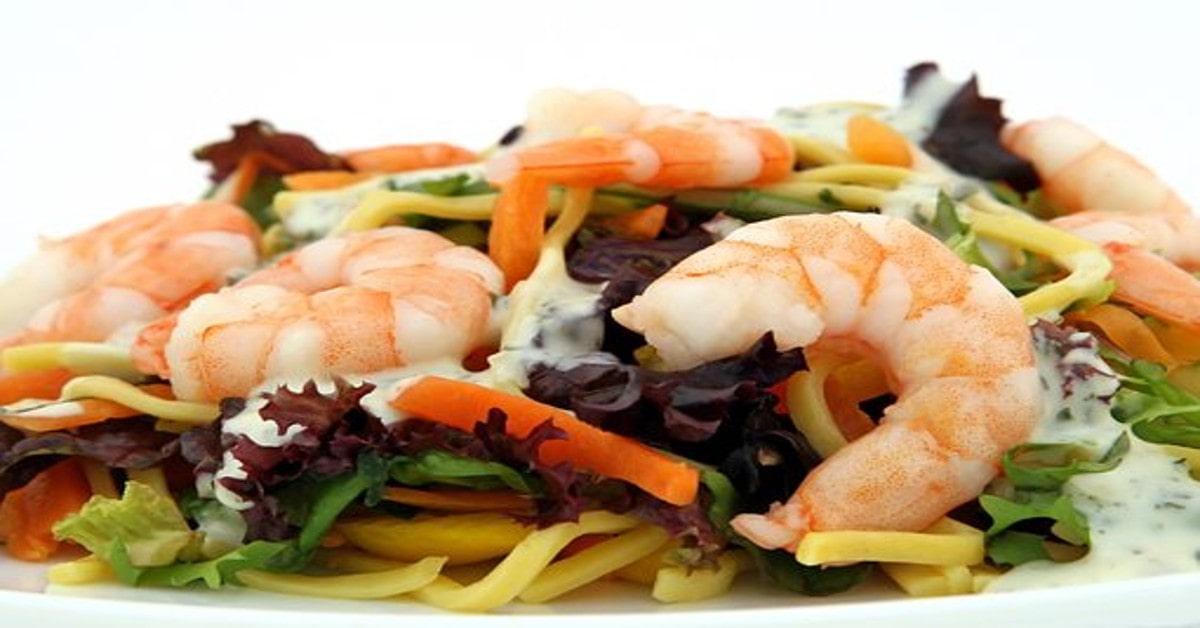For many people, losing weight can seem like a daunting task. With so many diets and weight loss plans out there, it can be hard to know where to start. But what if we told you that losing weight can be as simple as eating the right foods? It’s true – with the right diet and lifestyle changes, you can lose weight without feeling hungry or deprived.

In this post, we’ll explore the concept of losing weight eating and provide some tips and tricks to help you get started. We’ll also discuss some of the common misconceptions about weight loss and provide some guidance on how to make sustainable changes for long-term success.
Why Eating Is the Key to Sustainable Weight Loss
There’s no denying that diet plays a critical role in weight loss. While exercise can certainly help you burn calories and build muscle, it’s ultimately your diet that determines whether you’re in a calorie deficit or not. And as any weight loss expert will tell you, sustainable weight loss requires a calorie deficit over an extended period.
But the key to losing weight eating isn’t simply cutting calories. It’s about making smart food choices that will keep you feeling full and satisfied while also providing your body with the nutrients it needs to function optimally. When you eat the right foods in the right amounts, you’ll find that weight loss becomes much easier and more sustainable.
The Benefits of Losing Weight Eating
Losing weight eating has several benefits over other weight loss methods. First and foremost, it’s a more sustainable approach to weight loss. When you deprive yourself of food or follow a restrictive diet, you’re more likely to fall off the wagon and binge or give up altogether. But when you focus on eating the right foods, you’ll find that you can maintain your weight loss for the long haul.
Another benefit of losing weight eating is that it can improve your overall health. By choosing nutrient-dense foods and avoiding highly processed and sugary foods, you’ll not only lose weight but also reduce your risk of chronic diseases like diabetes, heart disease, and cancer. Plus, you’ll feel better and have more energy to tackle your day-to-day activities.

Tips for Losing Weight Eating
Now that we’ve established why eating is the key to sustainable weight loss, let’s dive into some tips and tricks to help you get started.
- Focus on Nutrient-Dense Foods
When it comes to losing weight eating, the quality of your food matters just as much as the quantity. Instead of focusing solely on calories, focus on choosing foods that are rich in nutrients like vitamins, minerals, and fiber. These foods will help you feel fuller longer and provide your body with the fuel it needs to function at its best.
Some examples of nutrient-dense foods include:
- Fruits and vegetables
- Whole grains
- Lean proteins like chicken, fish, and tofu
- Nuts and seeds
- Eat Protein with Every Meal
Protein is an essential macronutrient that helps build and repair tissues in the body. It also helps keep you feeling full and satisfied, which can help prevent overeating. Aim to include a source of protein with every meal, whether it’s eggs at breakfast, chicken breast at lunch, or tofu at dinner.
- Choose Healthy Fats
Contrary to popular belief, not all fats are bad for you. In fact, some fats are essential for optimal health and can even help you lose weight. Healthy fats like those found in nuts, seeds, avocados, and fatty fish can help you feel fuller longer and improve your overall health.
- Drink Plenty of Water
Staying hydrated is crucial for weight loss and overall health. Drinking water can help flush toxins from your body, reduce hunger, and boost your metabolism. Aim to drink at least eight glasses of water a day, and consider swapping sugary drinks for water or unsweetened beverages.
- Mind Your Portions
While choosing the right foods is important for weight loss, it’s also crucial to pay attention to your portions. Even healthy foods can lead to weight gain if you eat too much of them. Use measuring cups, food scales, or other portion control tools to help you keep track of how much you’re eating.
- Plan Ahead
One of the biggest obstacles to healthy eating is lack of preparation. When you’re short on time, it’s easy to grab fast food or reach for unhealthy snacks. But with a little planning, you can ensure that you always have healthy options available. Try meal prepping for the week ahead, or keep healthy snacks like cut-up veggies or nuts on hand for when hunger strikes.
- Be Mindful While Eating
Mindful eating is a powerful tool for weight loss and overall health. By paying attention to your food and eating slowly, you’ll be more in tune with your body’s hunger and fullness cues. This can help you avoid overeating and make more conscious choices about what and how much you eat.
Common Misconceptions About Losing Weight Eating
While losing weight eating is a proven and effective approach to weight loss, there are several common misconceptions about this approach that we’d like to address.
Misconception #1: You Have to Cut Out Entire Food Groups
Contrary to popular belief, you don’t have to cut out entire food groups to lose weight. In fact, doing so can lead to nutrient deficiencies and make it harder to stick to your diet in the long run. Instead, focus on moderation and balance. You can still enjoy your favorite foods, just in smaller portions and less frequently.
Misconception #2: You Have to Eat Small Meals Throughout the Day
There’s a common myth that eating small meals throughout the day can boost your metabolism and help you lose weight. While there’s some evidence to support this claim, it’s not a magic solution for weight loss. What matters more is the total number of calories you consume throughout the day. If eating small meals helps you stay on track with your calorie goals, then go for it. But if you prefer to eat larger meals, that’s okay too.
Misconception #3: You Have to Count Every Calorie
While tracking your calorie intake can be helpful for weight loss, it’s not necessary for everyone. Some people find that it leads to obsessive behavior or feelings of deprivation. Instead of focusing solely on calories, try to make healthy food choices and listen to your body’s hunger and fullness cues.
Losing weight eating is a simple and effective approach to weight loss that can help you achieve your goals without feeling hungry or deprived. By focusing on nutrient-dense foods, minding your portions, and making sustainable lifestyle changes, you can achieve long-term success and improve your overall health.
Remember, weight loss is a journey, and there’s no one-size-fits-all solution. Experiment with different approaches and find what works best for you. With patience, perseverance, and a healthy dose of self-love, you can achieve your weight loss goals and live your best life.

A Guide On Effective Weight Loss Programs
Effective weight loss programs are designed to help individuals lose weight in a safe and sustainable way. They typically include a combination of dietary changes, physical activity, and behavior modification strategies. In this guide, we’ll outline the key components of an effective weight loss program and provide tips on how to find a program that works for you.
- Set Realistic Goals
The first step in any weight loss program is setting realistic goals. While it’s natural to want to lose weight quickly, it’s important to remember that slow and steady progress is more sustainable in the long run. Aim for a weight loss of 1-2 pounds per week, and focus on making sustainable lifestyle changes rather than following fad diets or quick-fix solutions.
- Choose a Program That Fits Your Lifestyle
When choosing a weight loss program, it’s important to choose one that fits your lifestyle. For example, if you have a busy schedule, you may want to look for a program that offers flexible meal plans or online coaching. If you prefer group support, consider joining a weight loss support group or community.
- Focus on Nutrition
Effective weight loss programs emphasize healthy, whole foods that are rich in nutrients and low in calories. They typically recommend a balanced diet that includes a variety of fruits, vegetables, whole grains, lean proteins, and healthy fats. Avoid programs that promote extreme calorie restriction or eliminate entire food groups.
- Incorporate Physical Activity
Physical activity is an important component of any weight loss program. Aim for at least 30 minutes of moderate-intensity exercise most days of the week. This can include activities like brisk walking, cycling, swimming, or strength training. Look for programs that offer a variety of exercise options and emphasize the importance of regular physical activity.
- Monitor Progress
Regular monitoring of progress is key to staying motivated and on track with your weight loss goals. Look for programs that offer regular check-ins, progress tracking, or accountability measures. This can help you stay accountable and adjust your program as needed to ensure continued progress.
- Seek Professional Guidance
If you have significant weight to lose or underlying health conditions, it’s important to seek guidance from a healthcare professional. A registered dietitian, physician, or certified weight loss specialist can help you develop a personalized weight loss plan that takes into account your unique needs and circumstances.
- Avoid Quick-Fix Solutions
Finally, it’s important to avoid quick-fix solutions that promise rapid weight loss without sustainable lifestyle changes. These programs are often unsustainable in the long run and can lead to weight regain or other health problems. Instead, focus on making gradual, sustainable changes that you can maintain for the long term.
Effective weight loss programs emphasize sustainable lifestyle changes that promote healthy eating habits, regular physical activity, and behavior modification strategies. When choosing a program, focus on those that fit your lifestyle, promote healthy eating habits, and offer regular progress monitoring and support.
Remember, weight loss is a journey, and there’s no one-size-fits-all solution. With patience, perseverance, and the right program, you can achieve your weight loss goals and improve your overall health and well-being.
Best Way To Lose Weight Fast For Women and Men
Here are some safe and healthy ways for you to lose weight effectively.
- Focus on a Balanced Diet
One of the most important factors for weight loss is maintaining a balanced diet. A balanced diet includes a variety of fruits, vegetables, whole grains, lean protein, and healthy fats. Avoid highly processed foods, sugary snacks, and beverages, and limit your intake of saturated and trans fats. Eating a balanced diet can help you feel full and satisfied while still reducing your overall caloric intake.
- Portion Control
Portion control is a key factor in managing your calorie intake. It’s important to pay attention to the serving sizes of the foods you eat and to avoid overeating. One effective way to control portions is to use smaller plates or bowls, which can help make your portions appear larger.
- Drink Plenty of Water
Drinking plenty of water is important for weight loss because it can help reduce your appetite and increase your metabolism. Aim to drink at least eight glasses of water per day, and avoid sugary beverages like soda and juice.
- Incorporate Physical Activity
Regular physical activity is essential for weight loss. Aim to get at least 150 minutes of moderate-intensity exercise per week, or 75 minutes of vigorous-intensity exercise. You can also incorporate daily physical activity into your routine by taking the stairs instead of the elevator, going for a walk during your lunch break, or participating in a fitness class.
- Get Enough Sleep
Getting enough sleep is crucial for weight loss. Studies have shown that lack of sleep can disrupt hormones that regulate appetite and metabolism, leading to weight gain. Aim to get at least 7-8 hours of sleep per night to help support your weight loss goals.
- Seek Support
Seeking support from friends, family, or a support group can help you stay motivated and on track with your weight loss goals. You can also consider working with a registered dietitian or a personal trainer to help develop a personalized weight loss plan that meets your needs and goals.
There is no one “best” way for women to lose weight fast. It’s important to focus on making sustainable lifestyle changes that promote a balanced diet, regular physical activity, and good sleep habits.
Avoid quick-fix solutions or fad diets, and remember that weight loss is a journey that requires patience and commitment. With a healthy lifestyle and support, you can achieve your weight loss goals in a safe and sustainable way.

In conclusion, whether you are a man or a woman, the best way to lose weight effectively and safely is by adopting a balanced diet, controlling portions, incorporating physical activity, lifting weights, getting enough sleep, limiting alcohol intake, and seeking support.
It’s important to avoid quick-fix solutions or fad diets, and to focus on making sustainable lifestyle changes that promote a healthy and active lifestyle. By following these tips and staying committed to your goals, you can achieve your weight loss objectives and improve your overall health and wellbeing.
Remember to stay consistent, patient, and determined, and always consult with a healthcare professional before making any significant changes to your diet or exercise routine. With the right approach to losing weight eating, you can reach your weight loss goals and maintain a healthy and happy life.






















